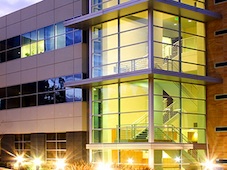Why should you invest in commercial property

Investing in commercial property
In this series of blogs we’re exploring what it takes to become a commercial property investor. We’ve looked at some of the myths around commercial property investment, and this month we ask ‘why invest in commercial property? What are the benefits?
As we explained last month, as a nation, we are comfortable buying and selling residential property. Half of us aged 15 years and over own our own home and many of us have investment properties. But what we haven’t learned is that investing in commercial property is not so dissimilar and it comes with significant benefits. Here are some of them:
Higher returns
Rental yield refers to the rate of income return over the cost associated with an investment property and is usually expressed as a percentage. Typically, the rental yield for commercial properties is higher than residential properties, which means more money in the pocket of the investor. Currently in New Zealand, residential rental yields are on the decline due to our rapidly increasing property values. Depending on the location, typical rental yields for residential properties are between 4 and 6 percent, whereas for commercial property it is not uncommon to get between 7 and 10 percent.
Longer leases
Commercial tenancies usually have lower turnover. Residential properties can often have more than one tenancy in a year. In contrast, commercial tenancies generally last between three and 10 years. Commercial tenants tend to spend more on the premises, which makes moving expensive – bearing in mind they also have a valuable customer base to consider as well. For the property owner this provides security and allows for better long-term forecasting.
Lower maintenance costs
The responsibilities for repairs, maintenance and property fees (such as rates and body corporate) are different for residential and commercial properties, and this instance they definitely favour commercial investors. For residential properties, the landlord pays. For commercial properties, in most cases, the tenant pays. For landlords of residential properties, these costs can suck up a large proportion of the rental income, therefore for commercial landlords, this represents in significant saving in terms of ongoing property costs.
Rental income protection
The most commonly used commercial lease in New Zealand is the ADLSI commercial Deed of Lease. This form includes a ratchet clause stating that any revised rental amount shall not be lower than the rent payable at the commencement of the lease. This means the rent will never decrease to below what it was at the beginning of the lease agreement.
Time savings
Fewer maintenance responsibilities and longer leases mean less time spent on property management – it also means fewer headaches, and that’s definitely a good thing.The Bob Jones's of this world know the benefits of commercial property investment and now you do too. Question is, what are you going to do now? Here’s an idea: check out our commercial property listings.
Next month we’ll get down to the nitty gritty and investigate what to look for in a commercial property.
Share this:
